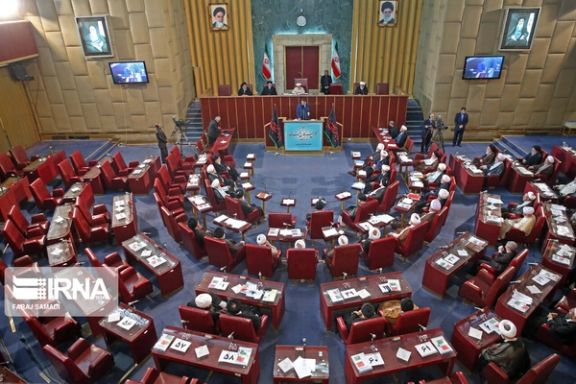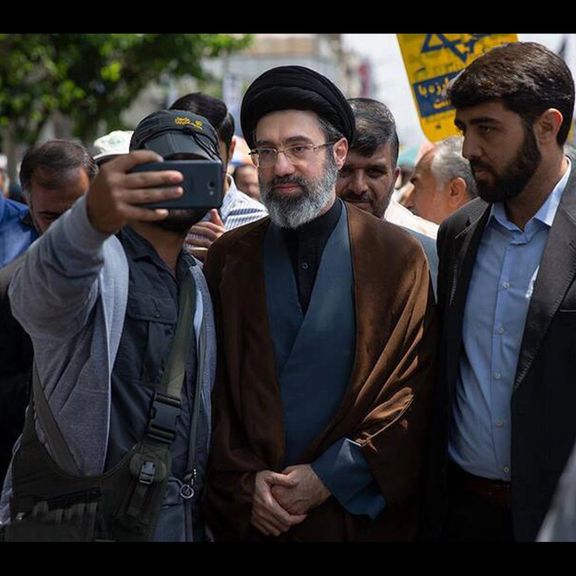Iran's Next Ruler: Assembly Of Experts Prepares For Succession

The recent Assembly of Experts engineered elections in Iran reflect a notable shift in the assembly's composition, beyond just the disqualification of certain candidates.

The recent Assembly of Experts engineered elections in Iran reflect a notable shift in the assembly's composition, beyond just the disqualification of certain candidates.
As Iran's supreme leader, 84-year-old Ali Khamenei ages, the newly elected Assembly of Experts will likely confront the task of selecting his successor.
Khamenei’s cautionary words on Thursday against potential conflicts among newly elected and re-elected members highlight the importance of preserving the assembly's primary responsibilities. He emphasized the need for the elected members to avoid internal strife, ensuring the assembly can effectively carry out its duties.
The orchestrated electoral process by the Guardian Council and the Interior Ministry aimed to select candidates aligned with the security apparatus and the IRGC, in accordance with Khamenei's preferences. This strategic maneuvering ensured the desired outcome without explicit directives from Khamenei himself.
The words of Khamenei, who told the Assembly’s three-member candidate review board to exclude his son Mojtaba, were interpreted in the media as Khamenei's decision not to put Mojtaba in his seat, but Khamenei's remarks were also interpreted as a directive to pave the way for his unimpeded ascension, bypassing vetting procedures. When after the 2005 elections, top politician Mehdi Karroubi criticized Mojtaba for his alleged interference as “a master’s son,” Khamenei responded that Mojtaba “is a master himself, not a master’s son."

Key individuals with a lot of insider information and intelligence data were disqualified from running in the assembly election. Former President Hassan Rouhani, and three former intelligence ministers, Ali Fallahian, Haider Moslehi, and Mahmoud Alavi, were disqualified. These individuals with a throve of potentially sensitive and damaging information on members of the assembly could influence a vote on succession. The Guardian Council also disqualified 366 out of 510 clerical candidates from a diverse spectrum and left only 144 candidates for 88 seats, which was not even twice the number of seats. In the previous round, 635 people were disqualified out of 801 candidates.
The manipulation of voting dynamics in various provinces favored certain candidates, indicating a strategic effort to influence the outcome in favor of preferred individuals. This calculated approach ensured that candidates aligned with Khamenei's vision secured significant support.
The election results across different provinces signify a noticeable shift towards younger clerics loyal to Khamenei, marking a departure from the previous assembly's composition. This generational change reflects Khamenei's strategic efforts to shape the assembly according to his long-term objectives. For example, long-standing clerics such as Hashem Hashemzadeh Harisi (East Azarbaijan province) and Kazem Nour Mofidi (Golestan province), members of the Fifth Expert Assembly who were close to Rafsanjani, did not run for office to avoid the humiliation of being disqualified.
Some approved candidates whose loyalty was not to the House of Khamenei, such as Javad Mojtahed Shabestri from West Azarbaijan Province, were eliminated in the voting stage. This was achieved because of very low turnout; the votes of the sixth Experts Assembly members are about a third of those in the previous term.
The absence of influential figures aligned with reformist factions, or more independent, suggests minimal opposition within the assembly to Mojtaba's candidacy. This lack of dissenting voices further strengthens Mojtaba's position as the favored candidate to succeed Khamenei.
Candidates associated with existing Shia authorities in Qom or Grand Ayatollah Sistani's disciples were sidelined, diminishing the possibility of alternative factions challenging Mojtaba's candidacy. This strategic maneuvering ensures that Mojtaba's candidacy remains unchallenged within the assembly.
Hassan Khomeini's disqualification in the previous term also reflected efforts to preempt any attempts by reformists to challenge Mojtaba's candidacy. This calculated move underscores the regime's determination to consolidate power and maintain control over the succession process.